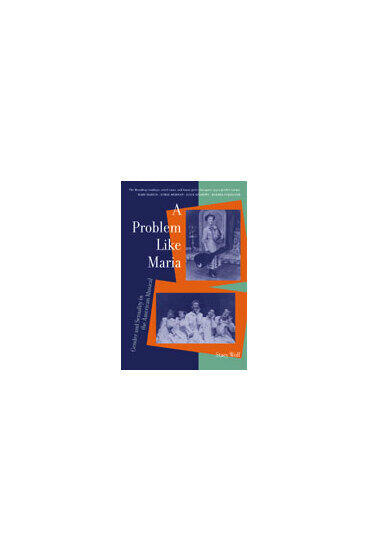A Problem like Maria
Gender and Sexuality in the American Musical
The Broadway tomboys, rebel nuns, and funny girls, who upset the 1950s gender norms: Mary Martin, Ethel Merman, Julie Andrews, and Barbra Streisand
Description
Subverting assumptions that American musical theater is steeped in nostalgia, cheap sentiment, misogyny, and homophobia, this book shows how musicals of the 1950s and early 1960s celebrated strong women characters who defied the era's gender expectations. A Problem Like Maria reexamines the roles, careers, and performances of four of musical theater's greatest stars-Mary Martin, Ethel Merman, Julie Andrews, and Barbra Streisand-through a lesbian feminist lens. Focusing on both star persona and performance, Stacy Wolf argues that each of her subjects deftly crafted characters (both on and offstage) whose defiance of the norms of mid-twentiethcentury femininity had immediate appeal to spectators on the ideological and sexual margins, yet could still play in Peoria.
Chapter by chapter, the book analyzes the stars' best-known and best-loved roles, including Martin as Nellie in South Pacific, Merman as Momma Rose in GypsyAndrews as Eliza in My Fair Lady and Guinevere in Camelot, and Streisand as Fanny Brice in Funny Girl. The final chapter scrutinizes the Broadway and film versions of The Sound of Music, illuminating its place in the hearts of lesbian spectators and the "delicious queerness" of Andrews's troublesome nun. As the first feminist and lesbian study of the American Broadway musical, A Problem Like Maria is a groundbreaking contribution to feminist studies, queer studies, and American studies and a delight for fans of musical theater.
Stacy Wolf is Associate Professor of Theatre and Dance, University of Texas, Austin.
Stacy Wolf is Associate Professor of Theater at the University of Texas at Austin.
News, Reviews, Interviews
Read an article about the author from Princeton University

